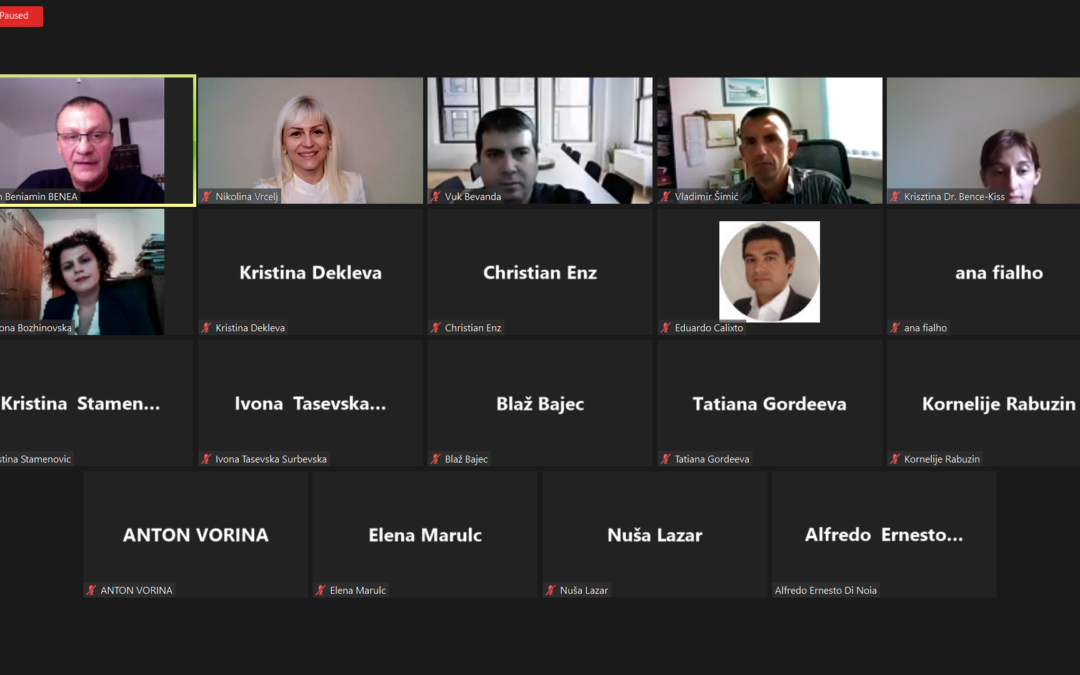Márcia R. C. Santos – ESCE, Instituto Politécnico de Setúbal, Portugal and Information Sciences and Technologies and Architecture
Research Center (ISTAR-IUL) at Instituto Universitário de Lisboa (ISCTE-IUL), Portugal
Rui Dias – ESCE, Instituto Politécnico de Setúbal, Portugal and CEFAGE-UE, IIFA, University of Évora, Portugal
Paula Heliodoro – ESCE, Instituto Politécnico de Setúbal, Portugal, and CICE, Polytechnic Institute of Setúbal, Portugal
Paulo Alexandre – ESCE, Instituto Politécnico de Setúbal, Portugal, and CICE, Polytechnic Institute of Setúbal, Portugal
DOI: https://doi.org/10.31410/ITEMA.2021.81
5th International Scientific Conference on Recent Advances in Information Technology, Tourism, Economics, Management and Agriculture – ITEMA 2021, Online/virtual, October 21, 2021, CONFERENCE PROCEEDINGS published by the Association of Economists and Managers of the Balkans, Belgrade; Printed by: SKRIPTA International, Belgrade, ISBN 978-86-80194-51-6, ISSN 2683-5991, DOI: https://doi.org/10.31410/ITEMA.2021
Abstract
Interpretation for the adoption of the International Financial Reporting Standards (IFRS) became to be challenging for organizations. Over time, these standards are changed to accommodate the improvements identified in accounting rules. COVID-19 pandemic impacted accounting reporting considering that contingencies and risks arising from this health crisis should be reported to stakeholders. In order to provide empirical evidence of the most important COVID-19 related practical and academic issues and challenges addressed by academics when reporting under IFRS, this study applies an automated computer-aided analysis for clustering the bibliometric data published concerning IFRS and COVID-19. The results support academic studies and practitioners by identifying the COVID-19 research streams that received the most attention in 2020. This study also suggests guidelines for future research that derive from past academic contributions.
Keywords
IFRS; COVID-19; Academic studies
References
Barth, M. E., & Landsman, W. R. (2010). How did financial reporting contribute to the financial crisis? European Accounting Review, 19(3), 399–423. https://doi.org/10.1080/09638180.20 10.498619
Bozkurt, O., Islamoğ lu, M., & Öz, Y. (2013). Perceptions of professionals interested in accounting and auditing about acceptance and adaptation of global financial reporting standards. Journal of Economics Finance and Administrative Science, 18(34), 16–23. https://doi. org/10.1016/S2077-1886(13)70019-2
Brown, P. (2011). International financial reporting standards: What are the benefits? Accounting and Business Research, 41(3), 269–285. https://doi.org/10.1080/00014788.2011.569054
de George, E. T., Li, X., & Shivakumar, L. (2016). A review of the IFRS adoption literature. Review of Accounting Studies, 21(3), 898–1004. https://doi.org/10.1007/s11142-016-9363-1
Silva, D., Schutte, D., & Surujlal, J. (2021). Unpacking the IFRS Implications of COVID-19 for Travel and Leisure Companies Listed on the JSE. Sustainability, 13(7942).
Efimova, O., & Rozhnova, O. (2021). COVID-19: Financial Impact and Disclosure. Lecture Notes in Networks and Systems, 186, 205–213. https://doi.org/10.1007/978-3-030-66093- 2_20
Fox, A., Hannah, G., Helliar, C., & Veneziani, M. (2013). The costs and benefits of IFRS implementation in the UK and Italy. Journal of Applied Accounting Research, 14(1), 86–101. https://doi.org/10.1108/09675421311282568
Lisicki, B. (2021). Impairment of Assets and Market Reaction during COVID-19 Pandemic on the Example of WSE. Risks, 9(10), 183. https://doi.org/10.3390/risks9100183
Morgan, G. G. (2013). Purposes, activities and beneficiaries: Assessing the use of accounting narratives as indicators of third sector performance. Qualitative Research in Accounting & Management, 10(3/4), 295–315. https://doi.org/10.1108/QRAM-04-2013-0016
Santos, M. R. C., Laureano, R., & Moro, S. (2020). Unveiling Research Trends for Organizational Reputation in the Nonprofit Sector. Voluntas, 31, 56–70. https://doi.org/10.1007/ s11266-018-00055-7
Uzma, S. H. (2016). Cost-benefit analysis of IFRS adoption: developed and emerging countries. Journal of Financial Reporting and Accounting, 14(2), 198–229. https://doi.org/10.1108/ JFRA-01-2015-0019
Yu, Y., Li, Y., Zhang, Z., Gu, Z., Zhong, H., Zha, Q., Yang, L., Zhu, C., & Chen, E. (2020). A bibliometric analysis using VOSviewer of publications on COVID-19. Annals of Translational Medicine, 8(13), 1–11. https://doi.org/10.21037/atm-20-4235





